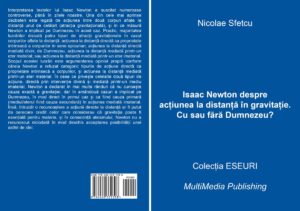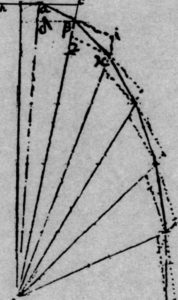 The interpretation of Isaac Newton’s texts has sparked controversy to this day. One of the most heated debates relates to the action between two bodies distant from each other (the gravitational attraction), and to what extent Newton involved God in this case. Practically, most of the papers discuss four types of gravitational attractions in the case of remote bodies: direct distance action as intrinsic property of bodies in epicurean sense; direct remote action divinely mediated by God; remote action mediated by a material ether; or remote action mediated by an immaterial ether. The purpose of this paper is to argue that Newton categorically rejected the types of direct action as the intrinsic property of bodies, and remote action mediated by a material ether. Concerning the other two types of action, direct through divine intervention and mediated through an immaterial environment, Newton has repeatedly stated that he does not know the exact cause of gravity, but in both cases, he has directly involved God, directly in the first case and as the primary cause (the environment/ether being the secondary cause) in immaterial mediated action. But since recognition of direct distance action could have given some credit to those who thought gravity could be essential to matter, and hence to atheism, Newton never openly acknowledged the possibility of such an idea.
The interpretation of Isaac Newton’s texts has sparked controversy to this day. One of the most heated debates relates to the action between two bodies distant from each other (the gravitational attraction), and to what extent Newton involved God in this case. Practically, most of the papers discuss four types of gravitational attractions in the case of remote bodies: direct distance action as intrinsic property of bodies in epicurean sense; direct remote action divinely mediated by God; remote action mediated by a material ether; or remote action mediated by an immaterial ether. The purpose of this paper is to argue that Newton categorically rejected the types of direct action as the intrinsic property of bodies, and remote action mediated by a material ether. Concerning the other two types of action, direct through divine intervention and mediated through an immaterial environment, Newton has repeatedly stated that he does not know the exact cause of gravity, but in both cases, he has directly involved God, directly in the first case and as the primary cause (the environment/ether being the secondary cause) in immaterial mediated action. But since recognition of direct distance action could have given some credit to those who thought gravity could be essential to matter, and hence to atheism, Newton never openly acknowledged the possibility of such an idea.
Keywords: Isaac Newton, action at a distance, God, gravity, gravity law, gravitation
CONTENTS
Abstract
Introduction
Principia
Correspondence with Richard Bentley
Queries in Opticks
Conclusions
Bibliography
DOI: 10.13140/RG.2.2.25823.92320
MultiMedia Publishing https://www.telework.ro/en/e-books/isaac-newton-on-the-action-at-a-distance-in-gravity-with-or-without-god/
Isaac Newton on the action at a distance in gravity: With or without God?

